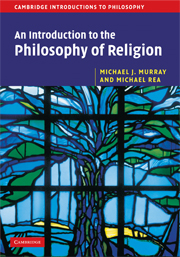Book contents
3 - God triune and incarnate
Published online by Cambridge University Press: 05 June 2012
Summary
Thus far in our discussion of the nature of God, we have focused on attributes that Jews, Christians, and Muslims alike have traditionally included in their concept of God. In the Christian tradition, however, God is characterized in two further ways that raise a host of philosophical problems in their own right. First, God is held to be triune. That is, Christians believe that, though there is but one God, God nevertheless exists somehow as three distinct divine persons: Father, Son, and Holy Spirit. Second, Christians believe that God became incarnate in the person of Jesus of Nazareth, and that Jesus himself was therefore somehow both fully God and fully human.
These features of Christianity might seem peculiar to say the least. Who would have thought that God had a tri-personal character? Who would have imagined that God would, or even could, become fully human? Nevertheless, it has been argued that the truth of the doctrine of the Trinity can be established by philosophical argument alone, wholly apart from divine revelation. On this view, perfect-person theology leads directly to one of the central and distinctive doctrines of the Christian faith, and constitutes an outright refutation of Jewish and Muslim conceptions of deity. (A strong claim indeed!) Moreover, many Christians think that certain historically grounded arguments can make it very reasonable to believe the doctrine of the incarnation.
- Type
- Chapter
- Information
- An Introduction to the Philosophy of Religion , pp. 64 - 90Publisher: Cambridge University PressPrint publication year: 2008



